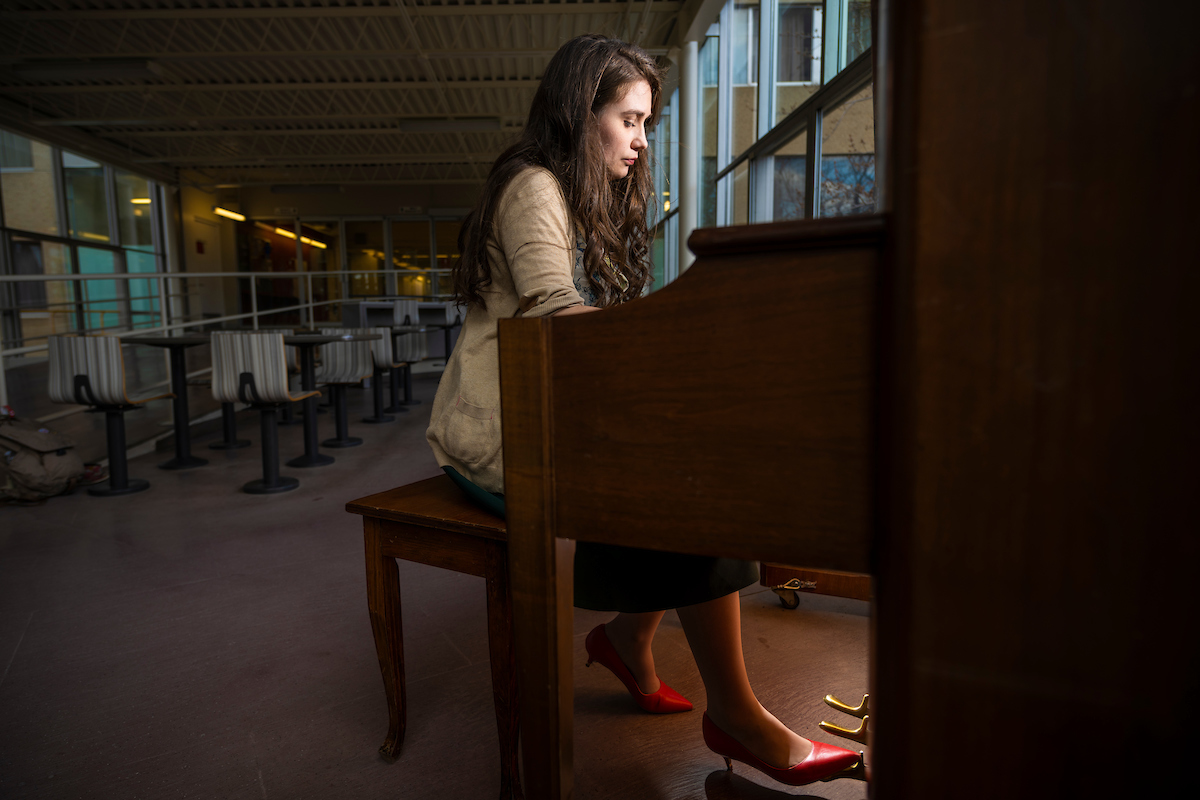
Megan Engel draws on her musical training to find the connections between scientific fields of research and interdisciplinary answers to research questions. Photo by John Ulan.
Theoretical physicist Carlo Rovelli said, "Quantum physics does not describe how things are, but how things interact with one another. Even we human beings [are] a net of interactions with the world."
I can think of no better way to describe who I am than with this concept. I am a network of interactions that underlie all I do, just as microcosmically, synapse connections between neurons comprise the basis for all higher learning and creative advancement.
I am a network of interactions between scientific disciplines. My academic path might at first appear disconnected; I hopped from computational quantum mechanics to laser microscopy to observational astrophysics during the summers of my undergraduate studies. But my interest really lies in what links these disciplines together: the universality of fundamental physical and mathematical laws, which can be applied to yield insights in diverse contexts, from X-ray binaries to lasers.
As my research career advances, I am particularly drawn to how biological systems have harnessed physics to remarkable ends. Human learning; the efficiency of photosynthesis; evolution; the miracle of the self-assembly of proteins and nucleic acids ... like distinct concertos written for the same orchestra, each of these phenomena connects the same beautiful principles that make stars burn, and I want to find the musical scores.
My interdisciplinary curiosity was nurtured by the deeply formative mentorship of several professors. I would never have considered research if I hadn't been encouraged by my first summer project supervisor, Kevin Beach, after class one day. And I would not have applied for graduate school if my final summer research supervisor, Professor Craig Heinke (physics)-who went above and beyond by coaching me to publish as an undergraduate-hadn't pointed me to a master's scholarship he thought I could get. I was shaped by the belief and support my cross-disciplinary mentors offered, and because of them, I went on to obtain a doctorate degree from Oxford and am now pursuing biophysical research as a Schmidt Science Fellow.
I am also a network of interactions between sciences and humanities. The first scientists were also philosophers, and remaining philosophically and ethically literate is vital for scientists. Among UAlberta's great strengths is its provision of freedom to have robust philosophical debates (particularly with those who disagree with you), and its requirement for scientists to engage with the arts. I vividly recall escaping to the Education building's music practice rooms-which were once open to all-to play piano, sing, and write music between quantum mechanics and electrodynamics lectures. Maintaining my artistic pursuits during a highly technical degree was vital for spurring new ways of thinking and contextualizing my research.
I will continue to strengthen and expand my network of interactions-scientific, artistic, personal, and spiritual-as my life continues, and will always reflect with gratitude on the latitude I was given to do so by the University of Alberta.